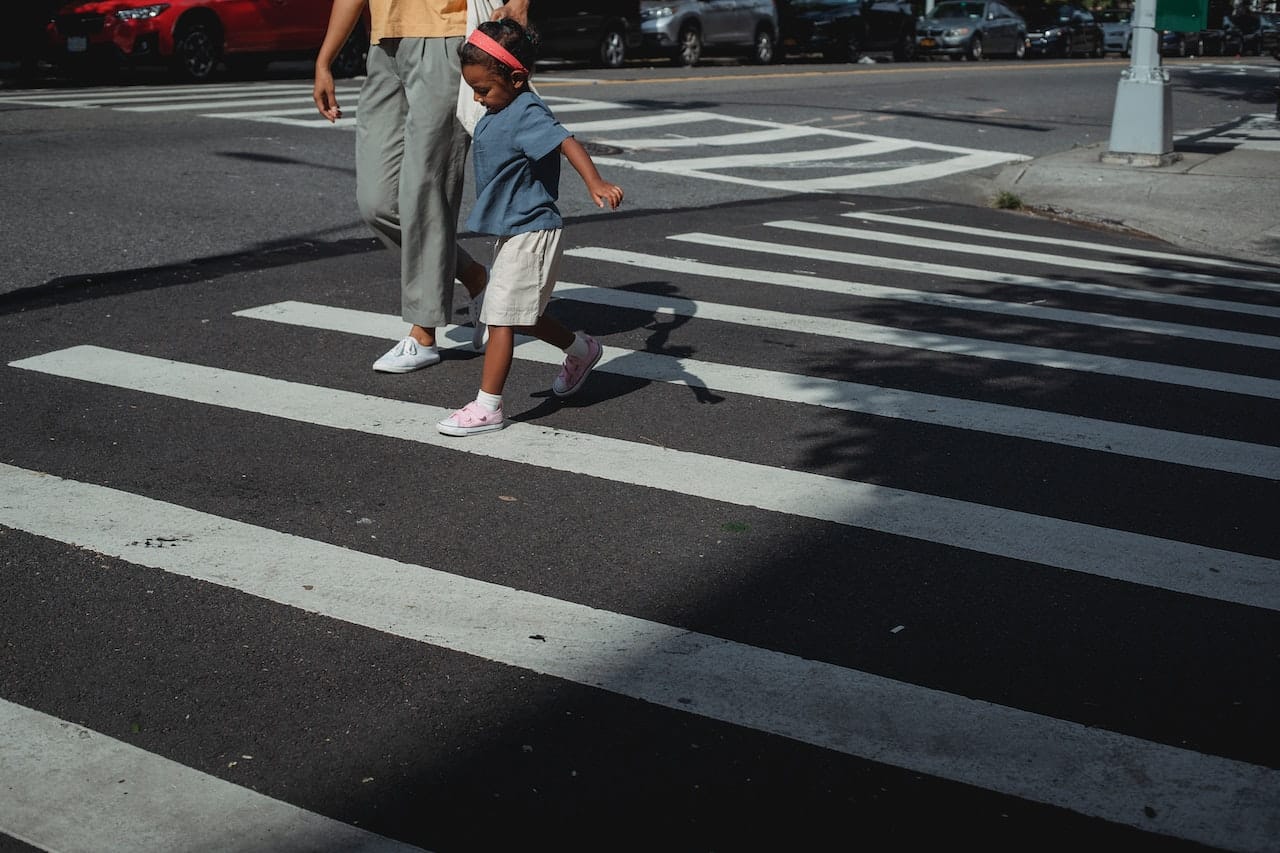Children as Vulnerable Road Users: a phrase that not only grabs our attention but also tugs at our heartstrings. The innocence and curiosity of children make them inherently vulnerable, especially when navigating the bustling and often unpredictable world of traffic. In this article, we will delve into the crucial topic of road safety education for children, exploring why it is of paramount importance and how dedicated programs can make a significant difference.
The Need for Road Safety Education
As we kick off this exploration, it’s crucial to understand why instilling road safety knowledge in children is not just a good idea but a necessity. The world outside our homes is filled with potential hazards, and children, with their boundless energy and eagerness to explore, need to be equipped with the tools to navigate it safely.
Ensuring a Lifelong Skill
Road safety education is not just about crossing roads or looking left and right; it’s about instilling a lifelong skill. When children grasp the fundamentals of road safety early on, these principles become ingrained in their behaviour, laying the foundation for responsible and safe habits as they grow older.
Reducing Accident Rates
In the United Kingdom, like many other places globally, road traffic accidents involving children are a pressing concern. Educating children on the dangers and best practices of road usage is a direct approach to mitigating these incidents. A well-informed child is more likely to make safer choices, reducing the overall accident rates involving young pedestrians.
Children: A Unique Vulnerability
Children, with their small stature and developing cognitive abilities, face distinct challenges when interacting with traffic. Understanding why they are more at risk is fundamental to crafting effective safety education programs.
Size Matters
One of the most evident reasons children are more vulnerable is their size. In the midst of bustling traffic, a child might not be as visible to drivers as an adult. Safety education emphasises the importance of being seen and heard, teaching children how to make themselves noticeable to drivers.
Limited Spatial Awareness
Children are still developing their spatial awareness, making it harder for them to judge distances and speeds accurately. This lack of experience can lead to poor decision-making when crossing roads. Safety education programs target this aspect, providing practical lessons to enhance children’s spatial awareness and decision-making skills.
Impulsive Behaviour
Curiosity and impulsivity are part and parcel of childhood. These traits, while endearing, can pose risks in traffic situations. Safety education aims to channel these characteristics positively, teaching children to curb impulsive actions and think before crossing roads.
The Role of Safety Education Programs
Now that we understand the ‘why,’ let’s explore the ‘how.’ Safety education programs play a pivotal role in shaping the road safety awareness of our youngest road users.
Interactive Learning
Gone are the days of dull lectures and lifeless pamphlets. Modern safety education programs engage children through interactive learning. This includes games, simulations, and even virtual reality experiences that make learning about road safety not only informative but also enjoyable.
Real-Life Simulations
To bridge the gap between theory and practice, some programs incorporate real-life simulations. These simulations recreate road scenarios, allowing children to apply their knowledge in a controlled environment. It’s a hands-on approach that enhances retention and practical application.
Parental Involvement
Safety education is not a responsibility solely shouldered by schools. In the UK, programs actively involve parents in the learning process. This ensures consistency between what children learn in school and the practices reinforced at home, creating a comprehensive approach to road safety education.
Beyond the Classroom: Practical Tips
While safety education programs are crucial, reinforcing these teachings in everyday life is equally important. Here are some practical tips for parents and guardians to enhance the road safety of their children.
Supervision Matters
Active supervision is a cornerstone of child safety around traffic. Whether walking to school or playing in the neighbourhood, having a responsible adult present ensures that children are guided and protected in potentially hazardous situations.
Establishing Safe Routes
Parents can work with schools and local authorities to identify and establish safe routes for children to travel. This includes well-marked crossings, pedestrian-friendly infrastructure, and minimised exposure to busy roads.
Leading by Example
Children are astute observers. When parents prioritise road safety and demonstrate responsible behaviour, it sets a powerful example. Simple acts like using crosswalks, obeying traffic signals, and avoiding distractions while walking contribute to a culture of safety.

Making a Road Traffic Accident Claim with National Claims
As much as we strive for a safer environment, accidents can still occur. In the unfortunate event of a road traffic accident involving a child, National Claims is here to guide you through the process of making a claim. Our experienced team understands the unique challenges associated with such cases and is dedicated to ensuring that families receive the support they need.
Compassionate Assistance
At National Claims, we approach each case with compassion and understanding. We recognize the emotional toll that accidents can take on families, especially when children are involved. Our team is committed to providing support and guidance throughout the claims process.
Expertise in Child Injury Claims
Handling a claim involving a child requires a specialised approach. National Claims has a team of experts with experience in child injury claims. We navigate the complexities of these cases to ensure that families receive the compensation they deserve.
Transparent Process
We believe in transparency and keep our clients informed at every step of the claims process. From gathering evidence to negotiating with insurance companies, National Claims works diligently to secure a fair outcome for our clients.
Conclusion
In conclusion, the safety of children as vulnerable road users is a shared responsibility that involves communities, schools, and parents alike. Safety education programs, enriched with interactive learning and real-life simulations, are instrumental in arming children with the knowledge they need to navigate the roads safely.
As we strive for a safer future for our youngest road users, let’s remember that the impact of road safety education goes beyond statistics. It moulds responsible citizens who understand the importance of vigilance, patience, and cooperation on the road. By investing in the education of our children today, we pave the way for a safer and more secure tomorrow.
Start your claim today with the help of one of our claims specialists by getting in contact with us.
Click below to see why we are one of the most trusted claims management companies in the UK.

We’re proud of our excellent customer reviews
We thrive on delivering exceptional service and ensuring our clients’ satisfaction. Don’t just take our word for it. Check out some of our independent reviews to see what our clients have to say.
Excellent

This firm is excellent, they sorted out my car pay out and injury claim very fast, they always communicate with you all the time.

My accident case was dealt with confidence and with great result of the outcome, especially James kept me informed all the time.

I was very impressed at the way my inquiry was treated. I was listened to attentively and everything I needed to know was explained to me.






